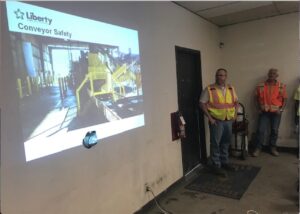Building A Culture of Safety
Safety is more than a program at Liberty Tire Recycling. It’s a core value that starts at the top –with the CEO—and permeates each of the company’s 63 facilities with a commitment to “sending every employee home safe every day.”
“It’s a culture of health and safety and it’s our number one priority,” CHRO Barry Mathis said.
Liberty carries out its commitment to safety in various ways, including site-level safety improvement committees, daily safety texts to all employees, 5-minute safety talks at every shift, and programs to identify high-risk behaviors and areas of opportunity.
In addition to these existing programs, a new initiative the company implemented last year as part of its 2023 ESG goals was to conduct FIRST AID CPR/AED (Automated External Defibrillator) training at each of its sites. As a result, Liberty conducted training sessions at more than 40 across the company in its inaugural year.
“We’re really proud of that,” Mathis said.
Recently, Liberty’s proactive commitment to continuously expanding its safety practices and training paid off—and not in the way you would necessarily expect, Straton Kirton, Vice President, Government Affairs said in recounting an incident at the company’s Salt Lake City facility.
“Last month a woman came to the front office door of our Salt Lake City site needing help. She said her husband was experiencing a heart attack. Two of our employees rushed to the car, while she called 911.
Our employees, guided by the 911 operator, removed the gentleman from his car, placed him on the ground, verified the absence of a pulse and began CPR. A third employee immediately brought the AED from the office.
They were able to successfully revive him before emergency services arrived and transported him to the hospital for further care.
“This very real-life example confirmed how investing in safety and education upfront can literally save a life, “ Kirton said.
“They didn’t really think about what they were doing, the training they had recently received triggered their muscle memory to kick in and instinctively carry out the steps they had been taught to try and save a life,” Kirton said.
Liberty prioritizes safety through active and open engagement with employees. Monthly safety improvement committees, organized at the site level, provide both managers and employees the opportunity to offer different opinions and viewpoints on safety challenges the company is facing.
 The safety improvement committees represent employees at all levels fostering teamwork, high levels of trust between employees and management and respectful communication in which employees can speak honestly and openly about safety shortcomings, offer solutions, and identify safe and unsafe behaviors, Mike Herbert, Corporate Director of Safety said.
The safety improvement committees represent employees at all levels fostering teamwork, high levels of trust between employees and management and respectful communication in which employees can speak honestly and openly about safety shortcomings, offer solutions, and identify safe and unsafe behaviors, Mike Herbert, Corporate Director of Safety said.
Both site safety and regional safety managers have an active role in committee meetings, daily safety briefings, and safety inspections.
Workers have STOP WORK AUTHORITY to stop work if safety concern or imminent hazard exists
“Building strong working relationships and trust among our employees at all levels allows us to discover what happens when there are mistakes or missteps, why it happened, and explore ways to ensure that it doesn’t happen again. They provide invaluable learning opportunities across the entire company,” Herbert said. “Safety is not just about training, it’s a mindset, an attitude, and it starts at the top.”
He credits Liberty’s safety culture to leadership that starts with Liberty’s CEO. Thomas Womble. “Every morning all employees are greeted with a safety text from our CEO, reinforcing the importance of safety in daily work habits,” Herbert said.
Each shift also starts with a 5-minute safety talk that focuses on a specific topic or reminders of how to keep safe on the job, often stressing things like alertness, respect for equipment and machinery, housekeeping and hygiene, personal protective equipment, safe lifting techniques and other proactive safe work habits.
Ninety-nine percent of the company’s safety training is done in-house and is presented in both English and Spanish.
Prioritizing employees’ safety has resulted in a 58 percent decrease in annual OSHA recordables and 85 percent decrease in Lost Time injuries since 2010.
Driver safety is another critically important priority at Liberty. The company has developed a set of best practices that lay a strong foundation for improving safety and compliance. These include robust monitoring systems, driver training programs, thorough pre-screening of drivers, and equipping fleets with needed compliance tools.
Liberty recently launched an in-house fleet management system that streamlines its record-keeping processes, allowing for easier monitoring and maintenance tracking, and ensuring that fleet operations remain in full compliance with regulations and industry standards. In addition , the company installed SmartDrive units in 291 trucks to reduce idle time, improve driver performance, and identify high risk behaviors.
In 2022, the company launched Liberty Learning, a comprehensive learning management system designed to handle the administration, documentation, tracking, reporting, and delivery of its training courses. This platform offers a range of safety, human resources, and legal coursework in both English and Spanish, catering to both new employee orientation and fostering ongoing skill development, certifications and recertification for experienced staff as required.
“Employees get on-board training from day one”, Herbert said.
New hire orientation consists of classroom and on the floor learning, onsite walk arounds to familiarize new employees with plant facilities and operations, personal protective equipment (PPE), fire safety and emergency equipment, machinery safe guards, workplace hazards and more. The Liberty Learning center also has a library of resources employees can access including safety data sheets, hazard assessments, educational/training videos, OSHA bulletins, tutorials and more.
Liberty Learning was initially piloted at eight sites in 2022 and is set to be implemented company-wide in 2024.
One of the most important areas of training is lockout tagout, Herbert said. It’s both mandatory and cause for immediate termination if not done properly. “You might say we are a little fanatical when it comes to assuring that employees are properly trained and have demonstrated proficiency in lockout tagout procedures and policies.
In 2023 Liberty adopted a Return To Work policy designed to ensure our team members stay engaged and financially whole and at the same time reducing claim and insurance costs.
In addition to in-house training, Liberty partners with insurance and industry equipment vendors to visit and share best industry practices.
Insurance teams conduct onsite risk control and loss prevention educational programs and training to assist in reducing incidents, injuries and liability claims.
On the equipment side, Liberty engages equipment manufacturers, installers and service personnel for firsthand instruction on safety procedures for operation, maintenance and repair of plant machinery, tools, conveyors, forklifts and other processing equipment.
Fire prevention and safety training focusing on zero fires and zero injuries are paramount at Liberty. Liberty conducts both internal and external fire suppression training with local Fire Service Personnel.
The fire department visits and completes yearly inspections and Liberty’s Fire Safety Specialist visits sites weekly to inspect for potential fire hazards, monitor site cleanliness and ensure firefighting equipment is in good condition. Plants are equipped with FLAMEX spark / fire detection and suppression systems.
Product storage and equipment is monitored daily to ensure everything onsite is stored correctly, working properly, in good condition and in compliance,
“Through the shared vision and commitment of our leadership team and employees at every level, we continue to improve and evolve our safety culture and build a safe work environment for all,” Herbert said.
© Scrap Tire News, February 2024






